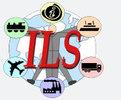
ILS 2012
Québec, Canada, 26 — 29 August 2012
ILS 2012
Québec, Canada, 26 — 29 August 2012

THEMATIC SESSION : Sustainable Logistics and Supply Chains I
Aug 27, 2012 02:30 PM – 04:00 PM
Location: VCH-2830
Chaired by Amin Chaabane
4 Presentations
-
 02:30 PM - 02:52 PM
02:30 PM - 02:52 PMCollaboration Mechanisms in Green Supply Chains: A Case in Pharmaceutical Industry
Global market demands and governmental pressures are pushing corporations to tackle their social and environmental responsibilities and to address Environmental Management (EM) in their supply chains. Collaboration mechanism plays a critical role to maintain the flexibility and responsiveness of supply chains. The main goal of this work is to review the existing literature on Green Supply Chain management with a special focus on collaboration mechanisms for accelerating the integration of environmental aspects in supply chains. The idea is to investigate the existing literature on supply chain collaboration in order to find potential benefits and issues in adopting them as collaboration mechanisms among different stakeholders while attempting to have green and sustainable supply chains. A pharmaceutical company is considered as the case study. The motivations of the company in greening the supply chain, major processes and functions, in addition to main stakeholders in the company are also reviewed. Finally, we suggest green purchasing and reverse logistics as potential areas for collaboration in order integrate environmental concerns and legislations in their supply chain.
-
 02:52 PM - 03:14 PM
02:52 PM - 03:14 PMThe Impact of Technologies such as RFID on Sustainable Logistics
This paper studies the impact on sustainability of using RFID. The information technology, the domain of RFID, takes a major role in the business world. More and more companies rely on information to find opportunities and provide their consumers with new services. Information systems have transformed markets and created new business models: the information technology provides new value drivers for companies so as to benefit from the economies of scale as large companies while remaining small by responding quickly and innovatively.
-
 03:14 PM - 03:36 PM
03:14 PM - 03:36 PMMulti-Agent Service Delivery Tour Planning Using Model Checking
Logistics planning may often involve service provision at multiple locations under plan specific constraints,ordering or sequencing especially in non-euclidean transit environments. In this respect, common approaches for vehicle routing fall short in adequately modeling and solving compound ad-hoc plan dependent constraints. In this paper, we address service provisioning involving multi-agent tour planning to reach demand points as fast as possible, by starting from different initial nodes of shared irregular transport graphs (characterized by having distinct degrees on most of their adjacent vertices). The planning problem is subject to specific constraints that require to consider agent movement without concern of returning to the starting point(s). In this setting, our alternative approach finds competitive solutions by expressing such problems into transition systems and related goal state properties that can be subjected to symbolic model checking using automated formal verification tools such as NuSMV. The negation of the goal state property allows to generate a counter example during the assessment such that, if a counter example exists, then the route allocation planning problem finds a solution. To mitigate the state explosion problem, we employ bounded model checking that has the additional advantage of providing counter examples of minimal length which correspond to minimized agent tours under a cost bound.
-
 03:36 PM - 03:58 PM
03:36 PM - 03:58 PMGreening the Supply Chain: Operational Adjustment versus Technology Investment
Greening a supply chain can be achieved by considering several options. However, companies lack of clear guidelines to assess and compare these options. In this paper, we propose to use multiobjective optimization to assess operational adjustment and technology investment options in terms of cost and carbon emissions. Our study is based on a multiobjective formulation of the economic order quantity model called the sustainable order quantity model. The results show that both options may be effective to lower the impacts of logistics operations. We also provide analytical conditions under which an option outperforms the other in a carbon tax context.